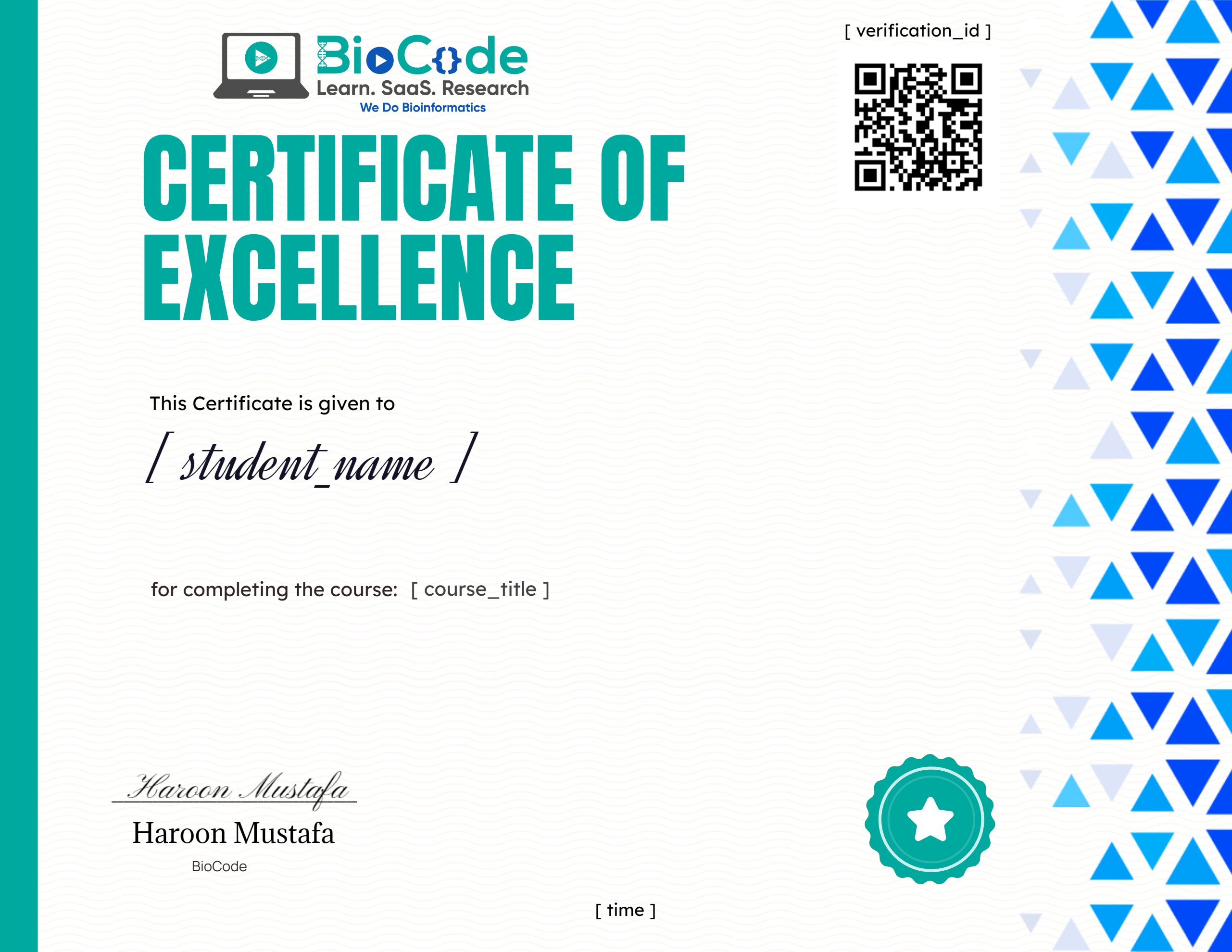Functional Enrichment Analysis (Gene Ontology, KEGG Pathways Analysis, Protein-Protein Interaction) Using Webservers and R Scripting
About Course
Section 1: In-depth Functional Enrichment Analysis of the DEGs (Theoretical)
Description: This section will focus on making sure that the students learn about the theoretical concepts of functional enrichment analysis and how it is done. Learning Outcomes: Upon completion of this section, students will be able to:- Understand What happens after DEG Analysis.
- Explain how we can interpret the Biomarkers further.
- Describe Functional Enrichment.
- Discuss the Tools for Functional Enrichment.
Section 2: Gene Ontology Analysis Using topGO and EnrichR (Practical)
Description: This section will focus on making sure that the students learn how gene ontology analysis is performed using EnrichR and topGo package. Learning Outcomes: Upon completion of this section, students will be able to:- Perform Biological Scripting in R Language.
- Perform Gene Ontology Analysis Using topGo in R.
- Perform Gene Ontology Analysis Using enrichR.
Section 3: Pathways Analysis Using KEGG, PANTHER, Reactome (Practical)
Description: This section will focus on making sure that the students learn about KEGG, PANTHER and Reactome and how the pathways analysis is performed using each server. Learning Outcomes: Upon completion of this section, students will be able to:- Perform KEGG pathways analysis.
- Perform PANTHER pathways analysis.
- Perform Reactome pathways analysis.
Section 4: Protein-Protein Interaction Analysis Using STRING (Practical)
Description: This section will focus on making sure that the students learn about protein-protein interaction analysis and how it is performed on the STRING database. Learning Outcomes: Upon completion of this section, students will be able to:- Explain Protein-Protein Interaction Analysis.
- Discuss STRING database.
- Perform Protein-Protein Interaction Analysis on STRING database.

Course Content
Introduction to Functional Enrichment Analysis
-
Theory: Functinal Enrichment Analysis of the DEGs
18:39
Practical Approaches to Functional Enrichment Analysis
Earn a certificate
Add this certificate to your resume to demonstrate your skills & increase your chances of getting noticed.

Student Ratings & Reviews
Great course.
Very useful and good for beginners. I truly recommend it

